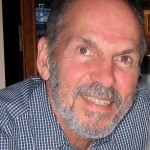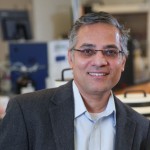 The new ACS President, Allison Campbell, wrote an editorial in C&E News (2/27/17) called “Speaking up for Science”. She is promoting greater advocacy on the part of chemists and will organize a presidential symposium titled “Communicating with Elected Officials” at the August 2017 ACS meeting in Washington, DC. More information can be found on the ACS website Advocacy page. There is much useful information there with a focus on visiting your Congressional representative and how to prepare for that visit.
The new ACS President, Allison Campbell, wrote an editorial in C&E News (2/27/17) called “Speaking up for Science”. She is promoting greater advocacy on the part of chemists and will organize a presidential symposium titled “Communicating with Elected Officials” at the August 2017 ACS meeting in Washington, DC. More information can be found on the ACS website Advocacy page. There is much useful information there with a focus on visiting your Congressional representative and how to prepare for that visit.
Most of us will not actually meet with our representatives, but we can communicate with them remotely. Some ways work better than others, just as some constituents get better access than others. If you are not the CEO of a large company planning to move a factory to Mexico (i.e., you are a “regular person”), here are some hints that can make your actions more effective. That material has been gleaned from a listserv for current and former congressional science fellows who have worked on Capitol Hill. I did not write most of it but I did edit it in order to produce a useful approach to advocating your position.
Also, there is a helpful, detailed article, “What Calling Congress Achieves” by Kathryn Schulz, in the March 6, 2017, edition of the New Yorker Magazine on the topic of how Congressional offices interact with people who contact them.
What do you care about? The environment? Off-shoring research jobs? The pre-college STEM pipeline? You probably won’t get results from one email, letter, or phone call to your Representative or Senator. But you can add your voice to others, including that of the ACS president. And you certainly cannot expect to get results by not emailing, posting, or calling. You’re a scientist: draw your own conclusions.

Dave Garin
Guest author: David Garin
David L Garin obtained his BS degree in Chemistry from the City College of New York; his PhD in organic chemistry from Iowa State University. Following NIH-funded postdocs at the Weizmann Institute of Science in Israel and at Indiana University, he became assistant professor at the University of Missouri–St Louis. Thereupon followed a 35-year career during which time he was a visiting professor at the Technion (Israel) and at Columbia University (New York).
His environmental interest led him to spend a year at the EPA in Washington, and then a year as an ACS Congressional Science Fellow. He worked on Superfund as a legislative aide to then-Congressman Albert Gore, Jr. Then, having developed an interest in science policy, he was a founder of the National Coalition for Science and Technology, a grassroots lobbying organization for scientists and engineers; he served as treasurer of its accompanying SCITEC-PAC.
Garin served as chair of Missouri’s first Hazardous Waste Management Commission, is coauthor of the textbook, Chemistry: Its Role in Society, and author of more than two dozen scientific and educational publications. For the Saint Louis section–ACS, Garin served as Section Chair and in several other positions (currently as Governmental Affairs representative and member of the Investment Committee) for continuous service of more than 40 years.


